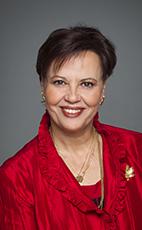Mr. Speaker, I would like to continue in the same vein as my colleague from Moncton—Riverview—Dieppe and say that we reject the premise of the Bloc’s motion itself, in that the Bloc is opposed from the outset to any seat for Quebec in the House of Commons.
Since they formed a party, their primary objective has been to eliminate all trace of Quebec in the federation. We know that some provinces have expressed concerns in the past about their representation in the House of Commons. We are very sensitive to this and we do want, as my colleague said so clearly, to work toward finding the best way of representing the provinces and regions in the House of Commons.
What we do not want is to give the Bloc an excuse to try to divide us in this House on a particular point, without going through a complete study in committee of the overall situation of the provinces of the federation. The committee is supposed to give us an opportunity to put forward the various positions of the regions of Canada and see how we can maintain equity in all the provinces. We are talking not about equality, but about equity. All regions of Canada need to feel that they are represented in the House of Commons.
We are concerned by the Conservative bill because it will result in under-representation of Quebeckers, based on the population of Quebec. We would like to make sure, in committee, that Quebec is represented fairly in the House of Commons.
But this problem—and we come back to this—is not limited just to Quebec. The federation is composed of provinces that are very distinct and very different from one another, with an unequal geographic distribution of the population. However, in order for all regions to be reflected in this House, it is absolutely necessary for exceptions to be made. Our colleagues from Newfoundland and Labrador, our colleagues from the Maritimes and our colleagues from the north have a job to do here for their constituents and their fellow citizens that is entirely honourable and necessary. It is therefore extremely important that this regional disparity, this geographic disparity, the immensity of this land, be taken into account, and that each region of the country be allowed representation that makes this diversity a concrete reality in our legislative debates.
Representation per person is in fact a fundamental principle of any democracy, and that principle ordinarily applies to the lower chamber. In our case, that is the House of Commons of Canada. But regional communities are often also represented in the upper chamber, which is our Senate, the Senate of Canada, where 25% of the seats are currently guaranteed to Quebec.
The Bloc cannot really believe in its motion, because when it was proposed during the Charlottetown referendum that this be entrenched in the Constitution, the Bloc opposed it. To the Bloc, the solution was simply to add no new seats to the House of Commons. As for the Senate, the Bloc does not even want it to exist. They are opposed to the principle of the Senate.
Every election, we have a party that fights to have Quebec get no seats in government at all. We must speak out against this feigned indignation, because they would like to convince us they are fighting today for Quebec to have a place in Ottawa. Well, the leader of the Bloc Québécois has just completed a tour of Canada so he could once again promote independence for Quebec, even though independence for Quebec would mean eliminating every seat Quebec holds in the House of Commons, which is what we want to avoid at all costs.

